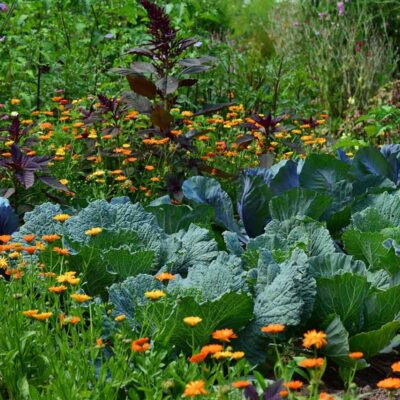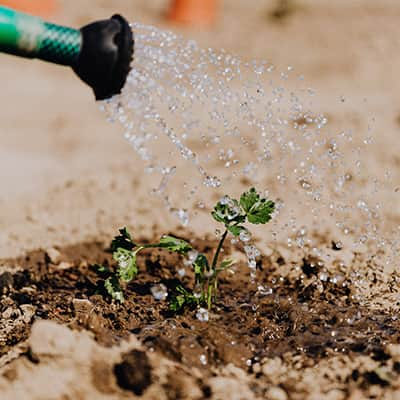The Power of Companion Planting: Natural Pest Control and Better Growth

Have you ever thought about how you arrange plants in your vegetable garden? For many, the ultimate goal is to maximize space. However, clever planting strategies can do much more—case in point: Companion planting. This technique is all about carefully arranging plants in a way that allows them to benefit one another, creating a more productive ecosystem that enhances soil health, deters garden pests, improves pollination, and boosts crop yields! It’s a core practice in organic gardening, and in this blog, we’ll provide tips on how to do it.
The Role of Companion Planting in Organic Gardening
Organic gardening is becoming increasingly popular as more people reject synthetic chemicals to repel pests. The problem, however, is that those hurdles will still stand in the way of cultivating a thriving garden. Pests will still invade, nutrients can continue depleting from the soil, weeds will pop up, etc. Companion planting helps combat all those challenges naturally, using the properties of every crop you plant. It’s a way to maximize resources while allowing plants to interact and complement one another.
There are a few core tenets of companion gardening. To optimize results, you must understand:
- How pests react to specific crops.
- What plants do to the soil.
- How plants impact biodiversity
- Positive and negative crop relationships.
This technique is complex, but understanding those basics can help you go far. Like anything else, this time-honored organic gardening practice often requires trial and error. However, doing your due diligence to figure out how plants interact and what they do to your vegetable garden can lead to great success.
The Benefits of Companion Planting
You have much to gain from companion-based gardening. Let’s look at a few of the biggest perks.
- Natural Pest Control: Many plants act as natural pest control, repelling bugs that might try to attack nearby crops. Use that to your advantage. For example, marigolds can drive aphids away to protect tomatoes, cucumbers, basil, and more. Meanwhile, planting dill or fennel can attract beneficial aphid predators like ladybugs.
- Weed Suppression: Some plants can help suppress weed growth. Large-leaf crops, like squash, can deprive weeds of sunlight to reduce their growth.
- Enhanced Soil Quality: Many plants in your vegetable garden will increase nutrient availability for nearby crops. For instance, legumes do an excellent job restoring nitrogen, while sunflowers and dandelions improve soil structure and aeration.
- Better Pollination: Growing flowers near your vegetable garden can attract beneficial pollinators, leading to better fruit and seed production.
- Space Efficiency: Companion planting allows you to use space more efficiently. Tall plants can act as a natural trellis for climbing crops, and plants with taproots allow deep-rooted companions to access more nutrients.
Arranging Your Vegetable Garden for Success: Tips and Tricks
Ready to start your journey with companion planting? It can be daunting, but here are several tips to get started.
- Prioritize Biodiversity: Avoid creating a monoculture. Incorporate many different types of crops in your vegetable garden to maintain a stable ecosystem that doesn’t get overrun by the same garden pests and diseases.
- Understand Sun and Water Needs: Group plants that have similar sun and water needs. Doing so will help you avoid hydration issues and excessive shading.
- Learn Plant Sensitivities: Understand what diseases and garden pests affect every crop. Use that knowledge to incorporate natural repellents.
- Consider Soil Needs: Always match nutrient requirements and pH preferences. Failing to do this could result in negative relationships, such as one crop depriving another of the nutrients it needs.
- Provide Plenty of Room: Companion-based organic gardening can optimize space, but avoid overcrowding. Every crop needs room to grow and receive sun.
- Utilize Herbs: There are countless herbs to plant. In addition to acting as natural pest control, herbs can enhance the flavors in your harvest.
You don’t need to turn to potentially dangerous chemical pesticides to see your garden reach its full potential! Companion planting helps deter pests, improve soil quality, and maximize your harvest naturally. Every plant in your vegetable garden brings something unique to the table. Understand what that is and follow our companion-based organic gardening tips. With some experimentation, you’ll see that grouping complementary plants can lead to abundant growth and better overall garden health.












